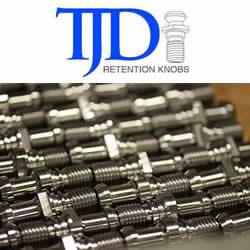How the US Election Could Shape Global Trade and M&A
(1).jpg)
Now that the election has concluded, the stakes for global trade and M&A are high. With potential changes to trade policies and international partnerships, the global supply chain landscape could be redefined. For example, a Trump administration may lean into protectionist trade measures, aiming to reduce reliance on China.
A recent Datasite survey of over 620 global M&A professionals found that 80% are concerned about the effect of national elections on global trade and supply chains. Among them, 35% believe rising trade tensions and interdependent supply chains pose the greatest risk to M&A activity in the coming year.
Market Adaptation and Deal Preparation
Amid this uncertainty, dealmakers are adapting. Nearly half of surveyed dealmakers in the US, UK, France, and Germany have already extended transaction timelines. Due diligence phases have also expanded, with the time to prepare deals in the Americas up by 27% this year. Buyers are conducting deeper investigations, while sellers are offering more transparency to meet a risk-averse market. Additionally, deal hold rates have increased, up five percentage points for the first nine months of the year compared to 2023. But while closing deals has become more challenging, it’s not impossible, and many of these deals are expected to close in the new year.
AI and Technology in Due Diligence
Technology may also help. In today’s complex environment, advanced technology—especially AI—is crucial for mitigating risks in M&A. AI tools can streamline due diligence by automating tasks like file organization, reducing human error, and helping manage growing data volumes. These efficiencies allow dealmakers to generate faster, more thorough insights, essential in today’s high-stakes transactions.
Despite AI’s potential, hesitation persists. A significant 73% of M&A professionals advocate for AI regulation, echoing recent government steps like the AI Bill of Rights and executive orders mandating AI safety standards. A Trump-led administration is expected to potentially limit federal oversight, favoring deregulation and potential tax incentives for domestic AI development, though impose more restrictive immigration policies that could impact talent acquisition.
Future of M&A in a Technologically Driven Landscape
Regardless of regulatory shifts, the use of AI in manufacturing and supply chain management—from production scheduling to process automation—is expanding. For dealmakers, leveraging AI and other advanced tools will be crucial in navigating this landscape, managing risks, and gaining an edge in competitive, data-intensive markets. Going forward, those equipped with the right technology will be better positioned to close deals effectively.
Comments (0)
This post does not have any comments. Be the first to leave a comment below.
Featured Product

